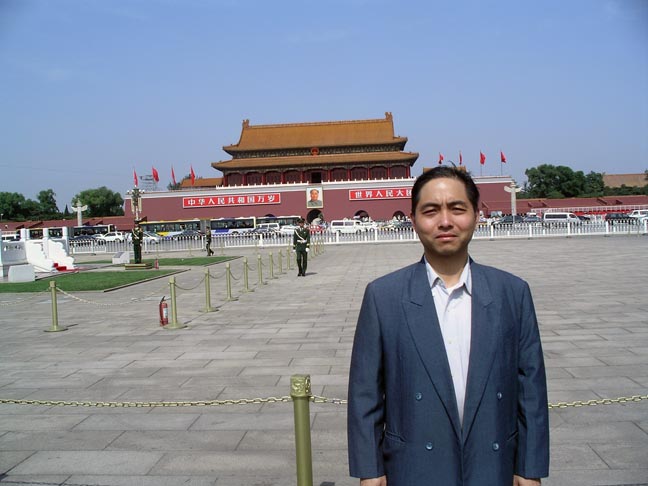
Lee Siu Hin: Journey to My Home 2009--Building Bi-national China-US Solidarity and Understanding
October 6, 2009 Beijing, China
Part Four
Greeting from Beijing, China!

Many of you might know I had been begin traveling to China since June, for a very important China-U.S. bi-national solidarity working trip. I had been traveling to different parts of China for important political meetings and organizing--Hong Kong, Zhuhai, Beijing, Dalian and Tianjin, and I am planning to stay in China until mid-November for few more projects.
In Hong Kong I spend few weeks metting with many important labor and political activists, such as Democratic Alliance for the Betterment and Progress of Hong Kong (DAB) one of the key left-progressive political party at Hong Kong (http://www.dab.org.hk/eng/en/content/home.do) and Hong Kong Federation of Trade Unions (http://www.ftu.org.hk/eng/index.html) for future cooperation. I also met with President of the Legislative Council of Hong Kong (he was my former high school teacher at Hong Kong, who also the leader of DAB, which I'll explain this at my later series).
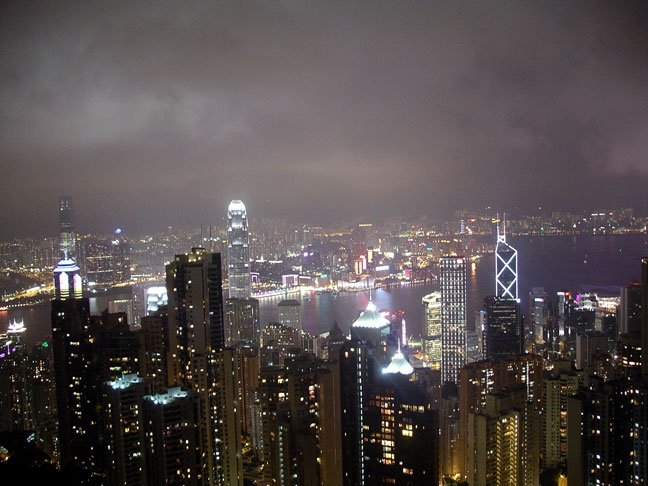
Politically: I want to connect/reconnect with my Chinese activists to build a China-U.S. bi-national solidarity. There's no doubt the tension (and cooperation) between U.S. and China (along with Russia and North Korea) are escalating, I also had been disappointed by U.S. activism at Obama era--the best wishing activists who vote out right-wing Republican at 2008 election had been sold by Democrats to continue Iraqi occupation; the military surge in Afghanistan; U.S. backing the coup regime of Honduras and reactionary policy thru China (and many other countries); the multi-billion dollars corporate bailout; almost failure on Obama's push on public healthcare, immigrant rights and labor rights.
The failure of left at this new "change" era and the surge of right wing extremism had forced me rethink the future of U.S. pecae activism? Why it failed (again and agin), and what we can learned from our past lesson and what we can learn fro other countries? [Please read my December, 2008 article: What We Should Expect from President Barak Obama?]
Therefore; my trips to China is aim to build a new movement--I am using my unique background as U.S. and Chinese activists to build a new movement that could benefit people of the both countries for years to come and show what U.S. (and U.S. activism) can learn from China.
Personally: I have also my personal agenda to come to China--that's no argument that economy in China is strong and prosperous. As a former undocumented low-paid worker in the U.S. (which also had been giving many empty promises for activism works from many U.S. activist organizations) at this moment I even have hard time to find minimum-wage job--although I have two Master's degree from Cal State University. I visit my parents in Tianjin and we had a very emotional discussions about my future. One of my former artist roomates in Pasadena, CA, they're from Europe and want to start their American dream 15 years ago, but left completely broke 10 years ago. Now, they're moved China and running a very successful busniness--when I met them at Beijing they just striaght told me: "What are you still doing in the U.S.?"
There's no doubt I come to China because I don't want to miss this economic opportunity.
Today is China's National Day--the 60th (1949-2009) anniversary of funding People's Republic of China (PRC), it's commonly and purposely mischaracterized by western media as celebrating the anniversary of Chinese communist revolution of 1949--it's a first misunderstanding about modern Chinese history. Most Chinese will agrees the revolution led by Chinese communist party was begin at 1920's with twenty years of military and political struggles to finally achieve victory. Furthermore, the term "revolution" in China also broadly mean the 110 years of Chinese nationalism and struggle against western imperialism, colonialism (includes: England, U.S. Germany, France, Russia, Japan, Italy and Austria) since the 1840 Opium War (led by England; the 1911 Republic revolution led by the KMT that overturned the Qing dynasty and creation of Republic of China; the civil wars and the 1931-1945 Ant-Japanese War--until the 1946-1949 cival war and the War of Liberation leading to the founding of PRC at 1949--and commonly refer China after 1949 as "New China" (common political slogan in China: "without (Chinese) communist party, there'll be no new China")

Most Chinese consider the national day celebration is the important symbol of national pride and "nation's renaissance"--a very popular term everyone use--basically mean: revitalize the China to become strong and powerful nation--like what it used to be the powerful national of the World for the past 5,000 years.
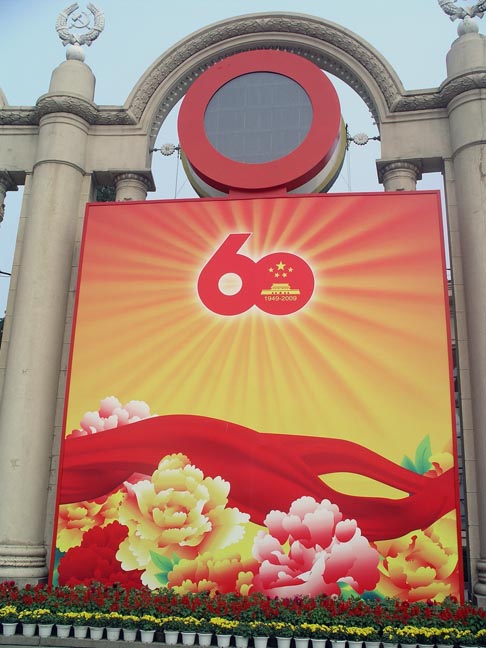
I went to a museum exhibition call "The Road of Rejuvenation" http://fuxing.chnmuseum.cn/ at the Beijing's China National Museum few days ago--the exhibition is basically the storytelling of China's "road to revolution" between 1940 to 1949; and "nation's renaissance" since 1949. While there's thousands of people visited the exhibition, I only saw less then 10 foreigners there that day.
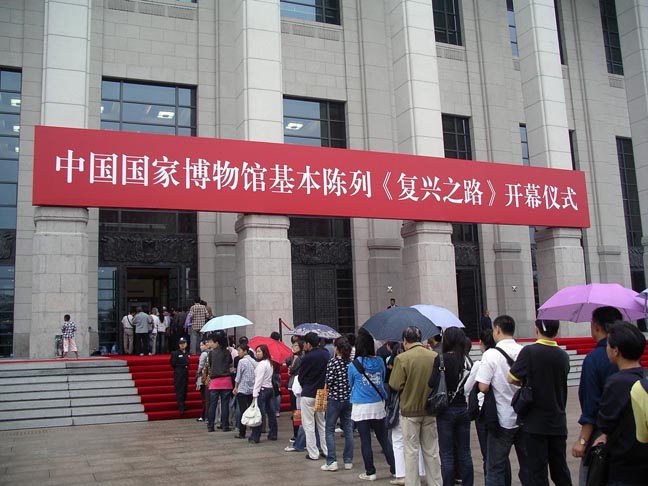
Across the city, during the October 1st national day holiday the security is high but not tense (in responds to the recent western backed July 5th Xinjiang riot that killed nearly 200 people, see my part three of my report); therefore, I saw the Oct 1 celebration thru TV--If you have chance to see the parade and the evening performance at TV, beyond political slogans the main theme are basically "Nation's Renaissance," and "Revitalize China."
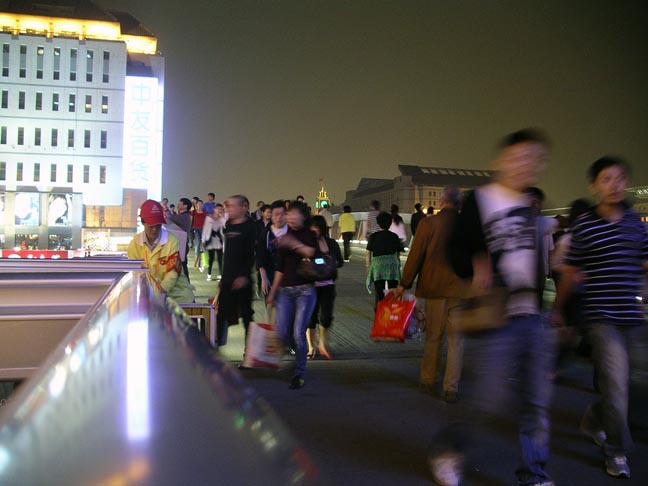
Beijing Photos: One Two Three Four
More stories of my trip will be coming soon….
Previous Reports